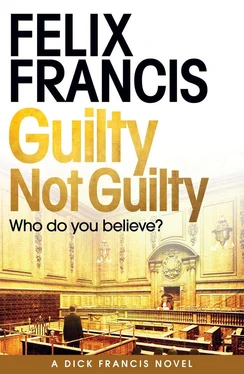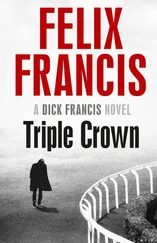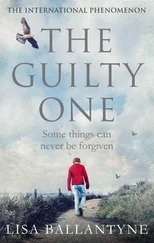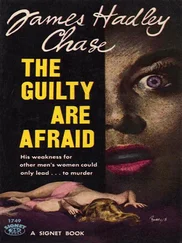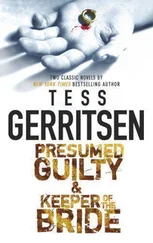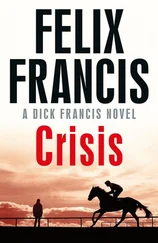How long did I want as sufficient punishment?
Or was it revenge that I needed?
I went and sat at my desk in the study, trying to write a Victim Personal Statement.
According to the Ministry of Justice website, my statement should explain the impact the crime had had on me.
It had totally destroyed my life, but how could I put that into words?
What I wasn’t allowed to include was any comment concerning the length of the sentence that I was hoping for. Lock him into a dank fetid dungeon and throw the key into the River Thames was not appropriate, even if I’d wanted it.
I tried four times, explaining not only the physical injuries I had suffered but also the emotional and psychological ones. I wrote about how the loss of my wife had immeasurably damaged the quality of my life on a day-to-day basis, and how any hopes for my future had been extinguished by her death.
But every time I read through what I’d typed on the computer screen, it all seemed inadequate and somehow rather trite.
For the fourth time, I deleted the words and then closed my laptop.
I had made my feelings perfectly clear during my testimony, so I decided I would now leave it up to the judge.
‘The prisoner will stand,’ said the clerk of the court.
Joe stood up and faced the judge.
If anyone had been hoping for a quick ‘I sentence you to life imprisonment — take him down’, after which the rest of us could go for an early lunch, they were to be disappointed.
Sentencing took the best part of an hour and a half, and Joe stood in the dock throughout.
The judge didn’t once mention the theft. Instead he merely summarised the actual convictions and applied the Sentencing Council guidelines to each, taking into account any aggravating or mitigating circumstances.
For the attempted murder, the judge took into account Joe’s forward planning and his premeditation in driving all the way from London, as well as the seriousness of my injuries and the long-term effects on my health. He did give Joe credit for his previous exemplary record and his previous good character but, nevertheless, he sentenced him to fifteen years imprisonment.
I glanced at Joe in the dock. He wobbled a bit but remained standing.
In England and Wales, there is a mandatory life sentence for murder. All the judge had to decide on was the tariff, the minimum term to be served before he was eligible for parole.
In mitigation, the judge ruled that, as Joe had not taken the murder weapon with him but had used something already to hand in the kitchen of the Old Forge, it suggested that the degree of pre-planning had been small, but that was more than offset by his breaking into the premises and killing within the victim’s own home, a place where she should have felt safe.
The guidelines stated that the minimum term of imprisonment for a person over the age of eighteen sentenced to life for murder started at fifteen years but, with the aggravating circumstances, plus the degree of violence used on a blood relative for financial gain, and bearing in mind the sentence already passed for the attempted murder, the judge set the tariff at twenty-five years.
Joe did more than wobble this time. He stepped backwards and sat down heavily.
And there was a gasp from some of the others in the court, me included.
Even without a Victim Personal Statement from me, the judge had thrown the book at him.
However, DS Dowdeswell, understandably, was delighted.
When I’d met him earlier he’d been disappointed, and not a little angry, that I had declined the opportunity to read out a victim statement prior to the sentencing, but all that had now gone. He was in jovial spirits.
I suppose, for the detectives in a murder case, the length of the sentence handed down to a guilty offender must be a measure of their success in the investigation. For some, and that obviously included DS Dowdeswell, life should mean life, but a tariff of more than twenty years was the next best thing.
But for me, the deep sorrow of yesterday returned. It was such a waste of so many lives, and especially of Amelia’s.
I declined an invitation from the police team to join them for a celebratory lunchtime drink in a local pub, and managed to avoid the media scrum outside the court by slipping away during the statement read by DCI Priestly to the waiting TV cameras.
I’d phoned my taxi driver, and he picked me up around the corner in Speedwell Street and took me home.
‘Good result?’ he asked as I settled into the back seat.
‘I suppose so,’ I said.
And, indeed, it was, in spite of my lack of enthusiasm. And I’d have been much more devastated if Joe had been acquitted of all the charges and had walked free.
But there were no winners here, just losers.
The driver took me to Hanwell in silence, for which I was grateful.
Life now had to get back to normal, at least as normal as I could make it.
Perhaps I’d give those insurance account managers a call and ask them to put me back on their persona grata lists, and maybe I’d invite a few estate agents round to value the Old Forge with a view to selling. Would a high-profile murder in the kitchen increase or decrease the price?
‘Don’t s’pose you need me any more,’ said the driver as he dropped me.
‘Not immediately,’ I said, giving him a generous tip. ‘But I’m sure I’ll use you again sometime.’
‘Always available,’ he said with a smile. ‘Give me a call.’
I stood and watched him drive away. Even though he didn’t know it, his friendly face every morning and evening had done much to keep me sane during the stress of the past weeks. And I’d miss him.
I went in to my quiet, lonely house.
Now what did I do?
I wandered aimlessly from room to room, unable to settle to anything, and ended up, as always, in the kitchen.
I looked at the broken lock.
‘I think it’s finally time I fixed you,’ I said out loud to it, and I dug out my toolbox from beneath the sink.
I had hoped it was just a matter of securing everything back into place, but the lock wasn’t just hanging off the wooden door, its metal casing was also twisted and useless, so I used a screwdriver and a pair of pliers to remove it completely.
I tried to straighten out the casing but without success and, if anything, I made it worse. I decided that I’d need a replacement lock, which was a bit of a shame as the broken one was old and in keeping with the age of the house.
Maybe I’d be able to match it with a modern reproduction. No time like the present , I thought, and I knew exactly where to go to find one.
There have been markets in Banbury since Anglo-Saxon times and one was still held in the centre of the town every Thursday and Saturday.
One of the regular stalls was run by a man with whom Amelia and I had become quite friendly over the years, since we’d moved into the Old Forge. He dealt in specialist hardware, especially little bits and bobs that you couldn’t get anywhere else. And much of his stuff was aimed at people like us, owners of listed buildings, for whom English Heritage laid down strict regulations concerning what we could and couldn’t use in repairs on our houses.
If anyone had a replacement lock of the right sort, it would be him.
Today was a Thursday and, if I asked him now, he might be able to delve into his huge stock at home to get the right part by Saturday. Otherwise I’d have to wait a whole week.
I drove my 174 m.p.h. supercharged Jaguar sports car into Banbury at a very sedate pace, and not just because I was worried about picking up another three points on my licence, something which would have triggered a ban. The collision with the tree and my resulting injuries had undeniably made me far more wary.
Читать дальше
